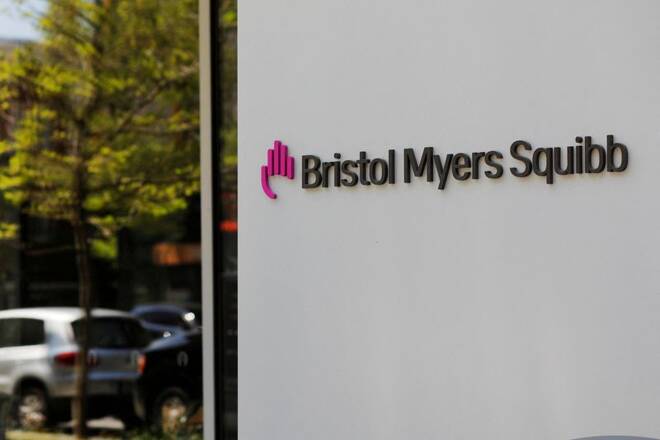Advertisement
Advertisement
U.S. Supreme Court rejects Bristol Myers cancer-drug patent fight with Gilead
By:
By Blake Brittain WASHINGTON (Reuters) -The U.S. Supreme Court on Monday rebuffed a bid by Bristol Myers Squibb Co's Juno Therapeutics Inc to reinstate a $1.2 billion award it won in its patent fight with Gilead Sciences Inc subsidiary Kite Pharma Inc over a lymphoma drug.
By Blake Brittain
WASHINGTON (Reuters) -The U.S. Supreme Court on Monday rebuffed a bid by Bristol Myers Squibb Co’s Juno Therapeutics Inc to reinstate a $1.2 billion award it won in its patent fight with Gilead Sciences Inc subsidiary Kite Pharma Inc over a lymphoma drug.
The justices turned away Juno’s appeal of a lower court’s ruling throwing out the award in the litigation over Kite’s biologic drug Yescarta, in a case that could have repercussions for the cutting-edge biologic drug industry.
Juno and Sloan Kettering Institute for Cancer Research sued Kite in 2017 in federal court in Los Angeles, accusing it of copying technology that the institute licenses to Juno. A jury awarded the plaintiffs $778 million in damages, which a judge later increased to $1.2 billion.
But the patent-focused U.S. Court of Appeals for the Federal Circuit threw out the award last year, finding that the patent was invalid because it lacked a sufficient written description. Juno and Sloan Kettering have told the Supreme Court that the Federal Circuit’s decision to invalidate the patent and other rulings against biologic patents have been “devastating for innovation.”
A Bristol Myers Squibb spokesperson said on Monday that it had sought high-court review to “restore the proper balance to our innovation economy by reaffirming the existing patent statute, which requires only a ‘written description of the invention’ that is adequate to inform skilled workers how to make and use it.”
“We will continue to work to correct this imbalance and the erroneous standard that has been set by the Federal Circuit,” the spokesperson said.
A Gilead spokesperson said the company was pleased with the Supreme Court’s decision, which has “effectively ended” the dispute.
Biologic drugs are made from biological cells, unlike traditional pharmaceuticals. Kite created Yescarta, which reprograms the body’s immune cells to recognize and attack cancer cells. Worldwide sales of Yescarta reached nearly $700 million last year.
Juno told the Supreme Court in its appeal that the Federal Circuit’s validity standard for patents forces biologic inventors to outline an “essentially infinite number” of potential variations in a patent.
Pharmaceutical companies including Amgen Inc and GlaxoSmithKline and research institutions including the St. Jude’s Children’s Research Hospital filed briefs in support of Juno.
Kite said in a brief to the Supreme Court that the Federal Circuit’s decision was in line with longstanding patent law and that Juno’s patent had “tried to monopolize – and block everyone else from investigating – millions of billions of possible drug candidates at the infancy of a field.”
On Nov. 4, the Supreme Court took up another patent case involving biologic drugs, agreeing to hear Amgen’s bid to revive patents on its cholesterol drug Repatha.
(Reporting by Blake Brittain and Andrew Chung; editing by Will Dunham and Grant McCool)
About the Author
Reuterscontributor
Reuters, the news and media division of Thomson Reuters, is the world’s largest international multimedia news provider reaching more than one billion people every day. Reuters provides trusted business, financial, national, and international news to professionals via Thomson Reuters desktops, the world's media organizations, and directly to consumers at Reuters.com and via Reuters TV. Learn more about Thomson Reuters products:
Did you find this article useful?
Latest news and analysis
Advertisement
